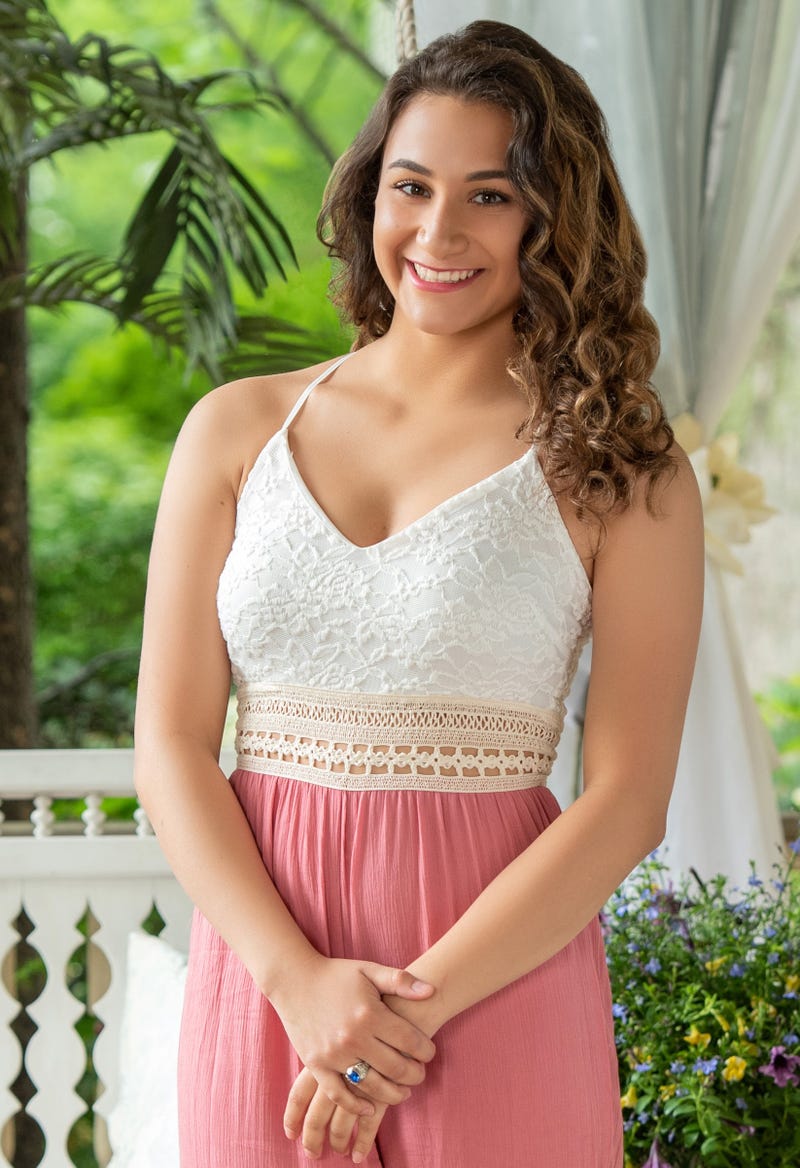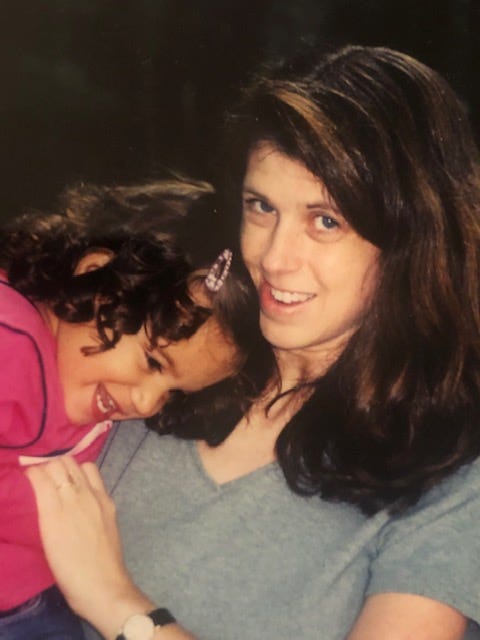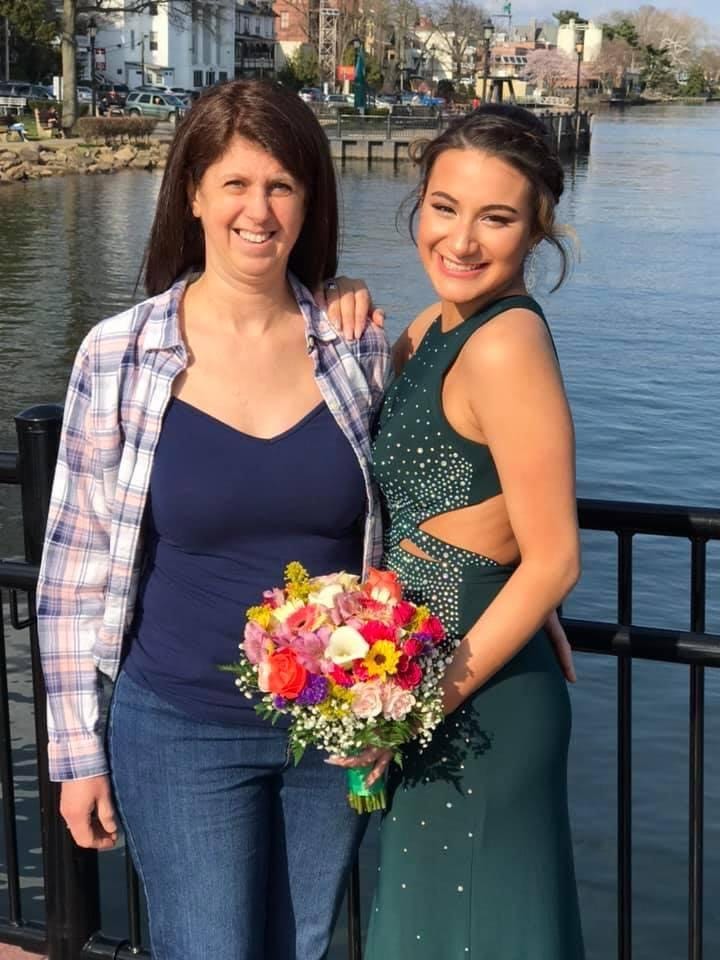PHILADELPHIA (KYW Newsradio) — Morgan McCaffery had always been a source of light and strength to those around her.
She was the person her friends went to for advice. At 16, she took the initiative to get a part-time job and volunteered in her spare hours — even putting some of her hard-earned funds toward charities. She joined her family on holidays, helping feed others on Thanksgiving and providing gifts for children on Christmas.
“She was a ball of energy from the day I adopted her,” said her mother, Kathy McCaffery. “She just had this special little spark about her.”


Kathy only wishes she knew what was going on with her daughter behind closed doors. The 18-year-old was stabbed to death in July 2020 by her ex-boyfriend, Gilbert Newton III, at the Meadowbrook Station in Abington.
Last month, the 19-year-old was convicted of first-degree murder and sentenced to life in prison.
Texts between the former couple were shown at the trial. In one, Newton told Morgan, “I honestly hope you die, I just want to stab you in the neck repeatedly.”
He also texted his own mother, “I want to stab this girl in the neck,” weeks prior.
“I wasn’t aware of the abuse that was going on when she was in the relationship,” Kathy recalled.
She learned some when they broke up, and they took precautions. Morgan’s family would pick her up from work after her shift so she wouldn’t have to walk to her car alone. Kathy didn’t know the extent of the graphic threats until the trial.
“I wish I had, but you don’t know what you don’t know,” she said. “Domestic violence is a topic that I didn’t think that I would ever learn so much about, but I am still learning, today, more and more about it.”
Abusive relationships do not discriminate
Kathy found out the abuse started verbally — Newton telling Morgan she wasn’t good enough, she wasn’t pretty enough. It escalated to biting and slapping, leaving Morgan bruised.
She is continuing to understand the patterns of domestic abuse, an effort now at the forefront of the family’s foundation, Morgan’s Light, which aims to educate young people about toxic, abusive relationships — and how to secure professional support before leaving one.

Statistically, one in three teens will be in some sort of abusive relationship, according to the Caron Treatment Center. And, the most dangerous time for a victim is when they leave.
“What I didn’t know, and I wish I had known, is that when Morgan left this relationship, that she was at the highest risk of death at that point. Statistically, when you leave a relationship that has been in her case physical, verbal and mentally abused, that is when the individual is at highest risk within that period of time after leaving,” Kathy explained. “That period of time can last up to a year, sometimes longer.”
It’s important not only for a victim to leave, but to do so safely with the guidance of professionals.
Some may say Morgan was not the type they’d expect to find in this situation, but Kathy emphasized that abuse does not discriminate.
Teens may not expect to find themselves in this situation either, but it’s crucial that they know it can happen to anyone, and resources are always available. Kathy said many teens associate these services with adult or family problems, but that’s not the case.
“Those programs are out there for any age to support anyone,” she reiterated, “and to get the counseling and the advice that they need.”
Teaching teens to speak out
Another facet of the work through Morgan’s Light is educating teens on what to do if a friend comes to them in confidence, either opening up or seeking help.
“[Teens] didn’t know how to deal with something like this,” Kathy said. “We don’t teach our kids how to deal with something like this. I didn’t know as an adult how to deal with something like this.”

She said it’s important for them to share that information with a trusted adult or school counselor — even if that means risking their friendship. The victim may be upset or feel that the trust has been broken, but it could save their life in the long run.
The victim also may not understand how mentally beaten they are, so they may not think clearly. Kathy believes that’s what happened to Morgan. She said if someone came to Morgan with a similar situation, she knows her daughter would have told her friend to seek help.
“Being in a toxic relationship, you shouldn’t have to handle that alone,” she said.
A year and a half since her death, Kathy knows that Morgan’s Light is what her daughter would have wanted her to do.
“She doesn’t want someone else to suffer like she suffered,” she said. “And so by telling her story, hopefully, that does help somebody break the pattern.”
If you think you or someone you know may be in an abusive relationship and needs help, contact the National Domestic Violence Hotline by calling 1-800-799-SAFE or texting “START” to 88788.
The following local services are also available:
Morgan’s Light resources
Women Against Abuse
Philadelphia
1-866-723-3014
A Woman’s Place
Doylestown, Bucks County
1-800-220-8116
Laurel House
Norristown, Montgomery County
1‑800‑642‑3150 or text “HOPE” to 85511
Domestic Abuse Project of Delaware County
Media, Delaware County
610-565-4590
Domestic Violence Center of Chester County
West Chester, Chester County
888-711-6270 or 610-431-1430
New Jersey Office of Domestic Violence Services
Pennsylvania Coalition Against Domestic Violence
1-800-932-4632 (in Pennsylvania)


